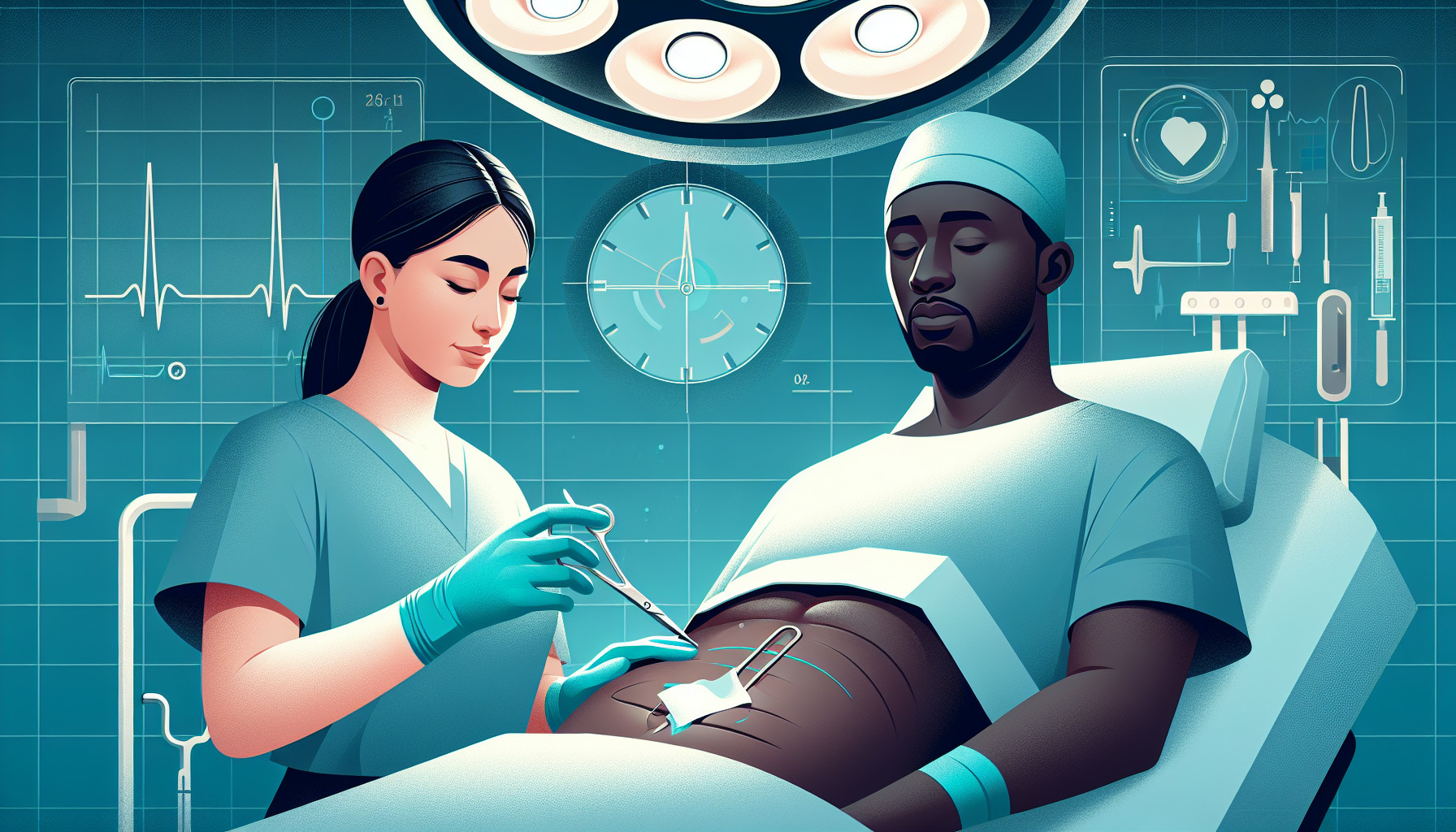Our Summary
This research paper is about colon diverticulosis and diverticulitis, two conditions that are becoming more common. Diverticulosis is when small pouches form in your colon, and diverticulitis is when these pouches get inflamed or infected. The paper looks at how these conditions are classified and treated.
The paper suggests that antibiotics aren’t needed for simple cases of diverticulitis in patients who have normal immune systems. It also debates whether a specific type of surgery called laparoscopic lavage is the best treatment for all patients with a severe form of diverticulitis called Hinchey III.
The paper also suggests that for certain patients with Hinchey III diverticulitis, a different type of surgery called segmental resection with primary anastomosis might be the best option.
Lastly, the paper argues that the decision to perform elective surgery for diverticulitis should take into account other health conditions the patient might have and how the surgery would affect their quality of life.
FAQs
- Is antibiotic treatment necessary for all cases of diverticulitis?
- What is the best treatment for patients with Hinchey III diverticulitis?
- What factors should be considered when deciding on elective resection in diverticulitis?
Doctor’s Tip
One helpful tip a doctor might tell a patient about diverticulitis surgery is to follow post-operative care instructions carefully to ensure proper healing and prevent complications. This may include taking prescribed medications, following a specific diet, avoiding strenuous activities, and attending follow-up appointments with your healthcare provider. It is important to communicate any concerns or changes in symptoms to your doctor promptly.
Suitable For
Patients who are typically recommended diverticulitis surgery include those with:
- Recurrent or severe episodes of diverticulitis that do not respond to conservative treatment
- Complications such as abscess formation, fistula, or bowel obstruction
- Perforation of the colon (Hinchey III or IV diverticulitis)
- Immunocompromised patients who are at higher risk for complications
- Younger patients with a high risk of recurrence or complications
- Patients with significant comorbidities that may make conservative management risky
- Patients who have a desire to avoid future episodes of diverticulitis and its associated complications.
Timeline
Before diverticulitis surgery:
- Patient may experience symptoms such as abdominal pain, bloating, and changes in bowel habits
- Diagnosis of diverticulitis may be confirmed through imaging studies such as a CT scan
- Antibiotics may be prescribed to treat the infection and inflammation
- Patient may be advised to follow a clear liquid diet and avoid certain foods to help manage symptoms
After diverticulitis surgery:
- Patient undergoes surgery, which may involve laparoscopic lavage or segmental resection with primary anastomosis
- Recovery time varies depending on the type of surgery and individual factors
- Patient may experience pain and discomfort post-surgery, which can be managed with pain medication
- Gradual return to normal diet and activities under the guidance of healthcare providers
- Follow-up appointments to monitor recovery and address any complications or concerns
What to Ask Your Doctor
- What are the different types of diverticulitis surgery options available and which one is recommended for my specific case?
- What are the risks and potential complications associated with diverticulitis surgery?
- What is the recovery process like after diverticulitis surgery?
- How long will I need to stay in the hospital after the surgery?
- Will I need to follow a specific diet or make lifestyle changes after the surgery?
- What is the long-term outlook for patients who undergo diverticulitis surgery?
- Are there any alternative treatments or therapies that I should consider before opting for surgery?
- How frequently do you perform diverticulitis surgery and what is your success rate?
- Can you provide me with information about your experience and expertise in performing diverticulitis surgery?
- Are there any specific pre-operative tests or preparations that I need to undergo before the surgery?
Reference
Authors: Mikalonis M, Dalsgaard P, Tøttrup A. Journal: Ugeskr Laeger. 2024 Sep 16;186(38):V03240218. doi: 10.61409/V03240218. PMID: 39530436
